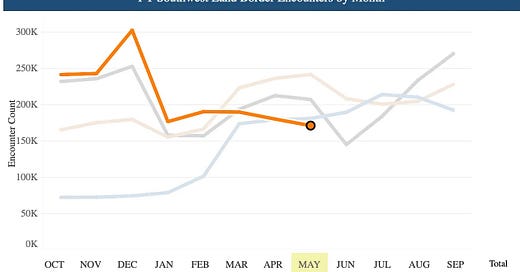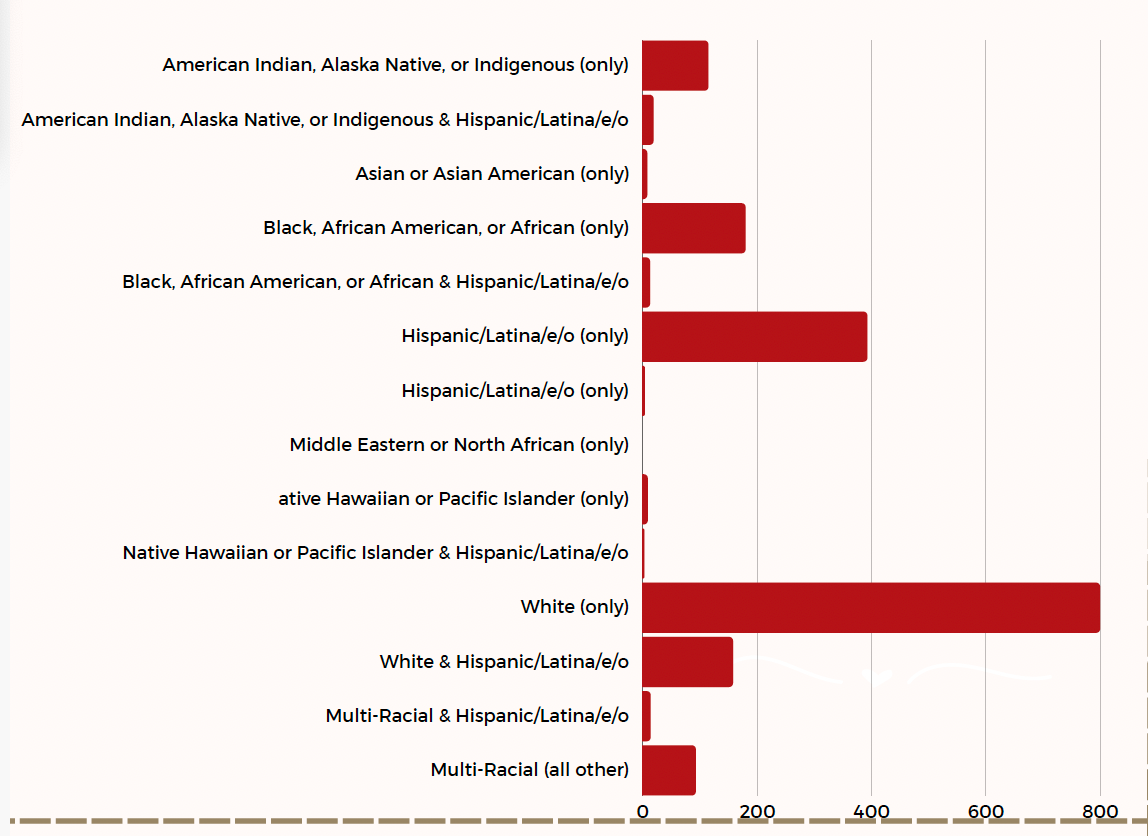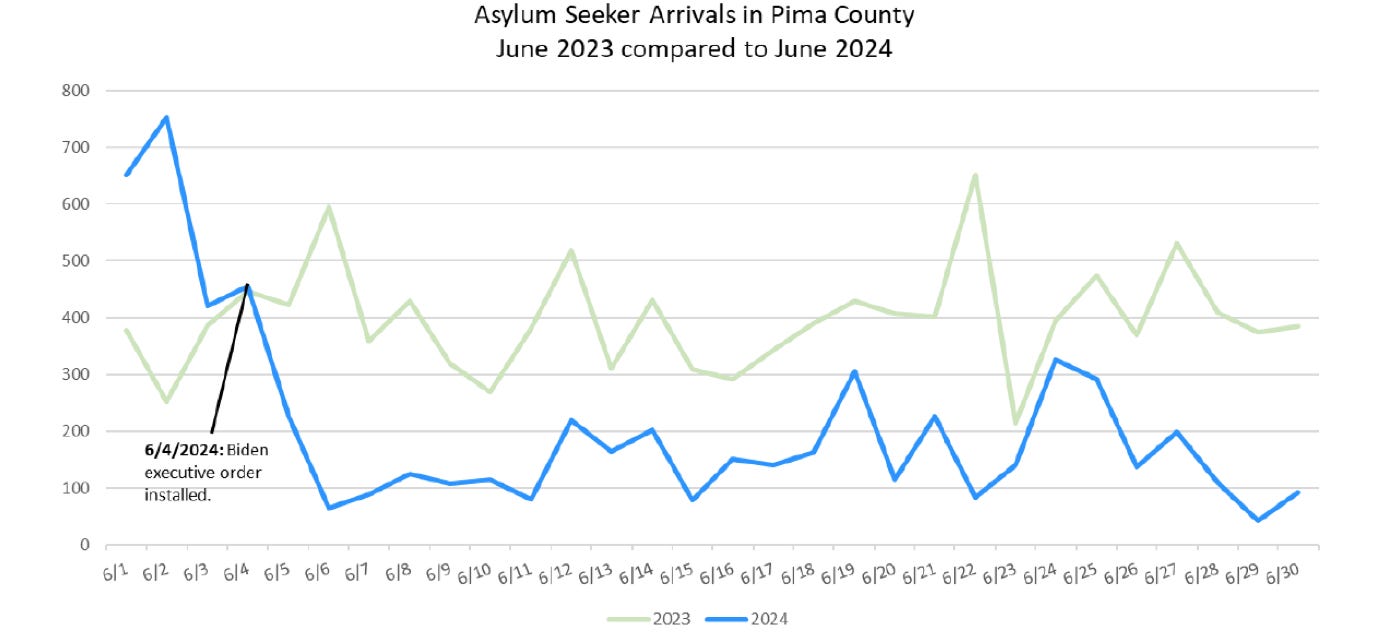The Daily Agenda: Fact-checking border soundbites
Two local Republican candidates have linked immigrants to the rise in Tucson’s homeless population … We took a look to see if that’s actually true ... Elections department does damage control.
You’re going to hear a lot about the border and immigration this election season. It already was a hot topic at this week’s Republican National Convention.
Even though there aren’t always facts to back up the claims made by politicians on the national stage, those claims continue to pop up in speeches, rallies and campaign ads. That’s why you’ll hear a lot about a supposed “invasion” at the border or immigrants being blamed unjustly for crime.
It’s not much different at the state and local level, where two Southern Arizona candidates linked immigration to Tucson’s rise in homelessness during interviews with the Tucson Agenda. And since fact-checking is one of our most important responsibilities as journalists, we did some digging to see if we could find evidence to back up these claims.
Spoiler alert: We could not.
We searched through local and state reports and while we found that there has been an overall rise in homelessness since 2019 in Tucson and in Arizona, there wasn’t any data supporting the statement that immigrants were a driving factor.
But we know that not everything can be quantified through data so we reached out to some experts to see if there’s anecdotal evidence linking migrants to the increase of unhoused people in Tucson.
“I haven't seen any indication that would make me think that migrants are a significant factor in the homeless population in Tucson or Arizona,” said Lynn Marcus, Director of the Immigration Law Clinic and the Community Immigration Law Placement Clinic at the University of Arizona. ”I'm not an expert in the composition of the (homeless) population, but if somebody is making that statement, I'd be very interested in where they're getting that information.”
Instead, it seems that rising rental costs, a shortage of affordable housing, reductions in shelter bed capacity and system inequities are to blame for an increase in homelessness, according to a report by Tucson Pima Collaboration to End Homelessness.
“We had an existing population that was struggling and COVID kind of tipped the scales on a lot of individuals and families,” said Tisha Tallman, chief executive officer of the Primavera Foundation. “All of those things combined have really created a scenario where more and more individuals are falling into poverty and deep poverty.”
Primavera Foundation is a non-profit whose mission is to co-create pathways out of poverty. The organization works with the unhoused population on several levels and while they don’t directly work with migrants or asylum seekers, Tallman said they have found no evidence to suggest that immigrants are the reason for the rise in homelessness in Tucson.
“We actually took a specific look to see if the uptick in services provided to folks seeking asylum and we just haven't found it to be true at all,” Tallman said. “Right after (Title) 42 was lifted we thought that we might see an influx in emergency services, but we didn't.”
Title 42, a public health order the Trump and Biden administrations used during the pandemic to turn away migrants at the border, was lifted in May 2023, and local media reported that Pima County was preparing for the “frightening” end, fearing the release of incoming migrants onto the streets that never came.
And earlier this year, fears of migrants on the streets once again arose when Casa Alitas faced a funding crisis, leading some people to believe it would be “homelessness on steroids,” though federal funding came through to avert that from happening.
But, there were no reports of significant increases in homelessness due to migrants and the number of Legally Processed Asylum Seekers actually decreased in the weeks following the funding crisis.
“I would be surprised if that (migrants were driving the increase in homelessness) here, because relatively few of the people who are being allowed to enter through the southern border in Arizona are staying here,” said Marcus, “They're usually en route to relatives in California, Georgia, Florida, New York or Boston or other places, usually major metropolitan areas.”
She also said that the people who do stay in Tucson as asylum seekers tend to seek and quickly receive work authorization, thanks to the U.S. Citizenship and Immigration Services’ efforts to expand processing.
The American Immigration Council reports that immigrants make up 16% of Arizona’s labor force, with the highest share of immigrant workers in industries like agriculture, construction, hospitality and manufacturing. They have $28 billion in spending power, pay about $9 billion in taxes and some undocumented immigrants pay taxes into a system that they will never benefit from.
Immigrants also don’t have a “one size fits all” set of circumstances. Some have been in the US without legal status for decades, and immigrants who are permanent residents are on their way to becoming naturalized citizens. There are also immigrants under a temporary protected status, asylum seekers and refugees.
Nicholas Matthews, a volunteer with Salvavision, a non-profit with a focus on providing aid and support to asylum seekers, migrants, and returnees, previously hosted an asylum seeker from Chad and is now hosting a man from Ecuador. He said that the asylum seekers he comes across are often moving elsewhere where they have a support system such as friends or family and don’t usually stay in Tucson.
“No conservative response in the sense of shutting down the border will really stop it. Maybe temporarily, but the numbers are going to go back up again,” he said. “You can build the tallest wall, all of these bureaucratic processes and people are going to still want a better life.”
We circled back with the candidates who made these statements to ask about our findings.
Former Republican state Sen. Vince Leach, who is seeking another term and previously told us that immigration added to the homeless and crime problem in Tucson, didn’t care to discuss the topic further.
“I really don’t have time to go back and forth with competing reports,” Leach wrote in an email. “Illegal immigration is the source of many problems in (Arizona). Homelessness Is one of them. To not recognize that is simply misleading your readers.”
Terry Frederick, a Republican running for Pima County Sheriff, didn’t remember telling Caitlin that the “homeless population has boomed since Tucson became a sanctuary city” and President Joe Biden took office. (Tucson is not a sanctuary city)
“I do not talk about the homeless during my speeches,” he wrote in an email, directing us to a video of a recent candidate forum. “There were a few times I did touch base on that issue but NEVER said it was caused by the flow of illegals.”
We explained to Frederick that he didn’t say this during a speech or forum, but during an interview with Caitlin, directing him to a link of the article.
“I know it’s easy to get caught up in politics. I can’t stop what someone tells you I said or never said,” he said.
Outside of this exchange, Frederick has not disputed any part of the story.
“Unfortunately, scapegoating immigrants is also a long American tradition,” Marcus said, adding that immigration is often a rallying point for conservatives.
Click here to read this story in Spanish.
Susan's work with the Tucson Agenda is supported by the Local News Initiative of Southern Arizona, a fund of the Community Foundation for Southern Arizona.
Help support our ability to dig into the stories behind the statements and provide you with information you need to vote.
Ballot blunder: Pima County Elections officials are reaching out to voters who received a sample ballot in the mail with the wrong date for Arizona’s primary election, the Arizona Luminaria’s John Washington reports. Community members at Tuesday’s board of supervisors cited the mistake during call to the public, which included several complaints about this and other election-related conspiracies. Every household that received the sample ballot with the wrong date should soon receive a postcard with the correct date.
That didn’t last long: The University of Arizona is stepping away from its 2019 rebranding as “UArizona” and returning to its familiar “U of A” moniker, Fox10 Phoenix’s Steve Nielsen reports. UA officials have not yet announced the change, but rather included it in the school’s written style guide, which says, "Please note: As of 7/1/24, ‘UArizona’ is officially retired and should no longer be used except in pre-existing instances or social media handles."
Student support: Tucson Unified School District has received $600,000 from the Arizona Department of Economic Security to assist Afghan refugee students, KGUN reports. The funding will be used for transportation, academic and language support to help students fully integrate into the community. TUSD will track the funds through goals, including language fluency, attendance rates and more. Superintendent Dr. Gabriel Trujillo said that the district’s Afghan student community is a “vibrant focus” for TUSD.
Keep cool in school: TUSD is replacing air conditioning units in dozens of its schools with funding from last year’s voter-approved bond, Arizona Public Media’s Hannah Cree reports. District officials say HVAC improvements were a priority for the funding, with the work expected to be completed by October. The first round of money will also pay for signage, parking lot improvements, student technology and AED installations in classrooms.
Backing his man: Former Pima County Sheriff Clarence Dupnik wrote an opinion piece for the Tucson Sentinel endorsing incumbent Chris Nanos in the packed race to be the next sheriff. Dupnik, who was sheriff from 1980 through 2015, says Nanos has taken the department to “new heights of accountability, transparency and community-oriented programming.” Dupnik hand-picked Nanos to be his replacement when he retired in 2015, urging supervisors to appoint Nanos to finish out his term.
Raking in the bucks: Democrat Ruben Gallego’s U.S. Senate campaign has collected nearly $30.6 million, including more than $9.4 million in the last quarter, Capitol Media Services’ Howard Fischer reports. This is far more than Republican Kari Lake, who reported $4.4 million in fundraising in the last quarter for a total of just over $10 million in the race. Newly released campaign finance reports indicate that Arizonans are about to be flooded with commercials, signs and campaign ads, with AdImpact predicting that more than $821 million will be spent on political advertising in Arizona.
55,870: The number of early ballots returned in Pima County as of Monday, according to Uplift Campaigns.











Damn...I'm heading to Apple Annies!!!